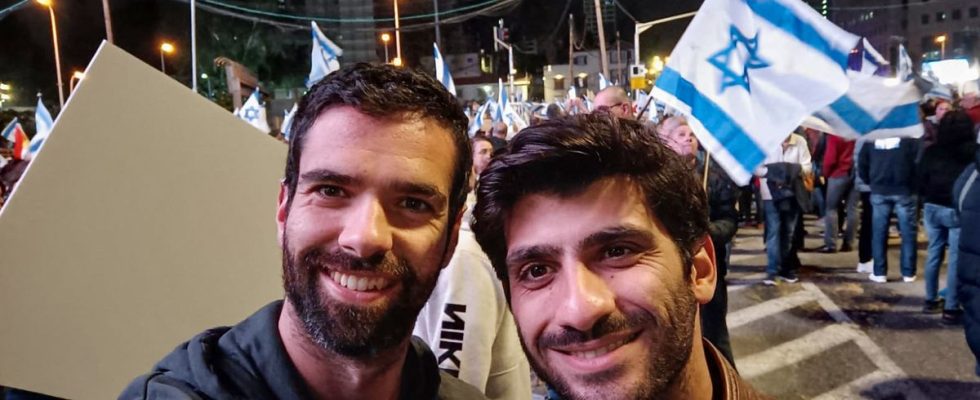Intended for the “wedding”, cotton flowers ultimately adorned a funeral wreath. Sagi Golan, a 30-year-old Israeli soldier, was killed on the night of October 7 to 8 during fighting in Kibbutz Beeri, two weeks before his “wedding” with his companion Omer Ohana, 28. Although gay marriage is not recognized in Israel, Omer Ohana still managed to obtain the same rights as married couples for the partners of deceased homosexual soldiers.
On November 6, the Israeli Parliament, the Knesset, amended the provision granting state support only to widows and widowers of married soldiers. From now on, “all people who live together”, gay and straight, can access widowhood allowance, summarizes Yorai Lahav-Hertzanu, an elected official from the centrist Yesh Atid party, who worked for the adoption of the amendment . The partners of hostages or missing persons can also benefit from it regardless of their gender, according to the MP, who welcomes “a major step on the path to equality”.
“Not recognized as a partner”
The two reservists had lived together for six years and had planned to “get married” on October 20. “It was more of a party with a ceremony,” explains Omer, met by AFP in their apartment in Herzliya, in the center of the country, because “same-sex partners cannot get married in Israel”, where only religious marriages are authentic. A gay marriage contracted abroad can, however, be recognized there.
In Beeri, Sagi was killed after having “extracted families from their shelters” and brought aid “to a unit caught under fire,” Omer says between sobs. Hit in the chest, he “was already dead” when his unit recovered his body two hours later. Devastated, Omer must also face “bureaucratic” problems. An officer “did not recognize me as Sagi’s partner,” he says. He asked the army for explanations and the soldier was sanctioned.
A battle to have the right to financial, psychological and medical support
In a country where sexual minorities have gained increasing visibility and rights in recent decades, Sagi and Omer had “never experienced discrimination.” “But we are still not equal in life,” he notes, bitterly.
At the end of October, Israeli media relayed the fact that in the midst of mourning, the widower had had to battle with the administration to be entitled to the financial, psychological and medical support provided for by law. At the beginning of November, the Knesset therefore agreed with him. But his fight does not stop there: he now intends to campaign for “a set of eight laws” which, once adopted, “will guarantee absolute equality in Israel” to LGBT people.
Receiving “thousands of messages” of support, Omer Ohana today clings to Sagi’s “dream” of “becoming a father”, through surrogacy, authorized in Israel since 2021 for homosexual couples. The deceased’s sperm was frozen. Sagi is no more, but his lover will do anything to ensure he has a child.

